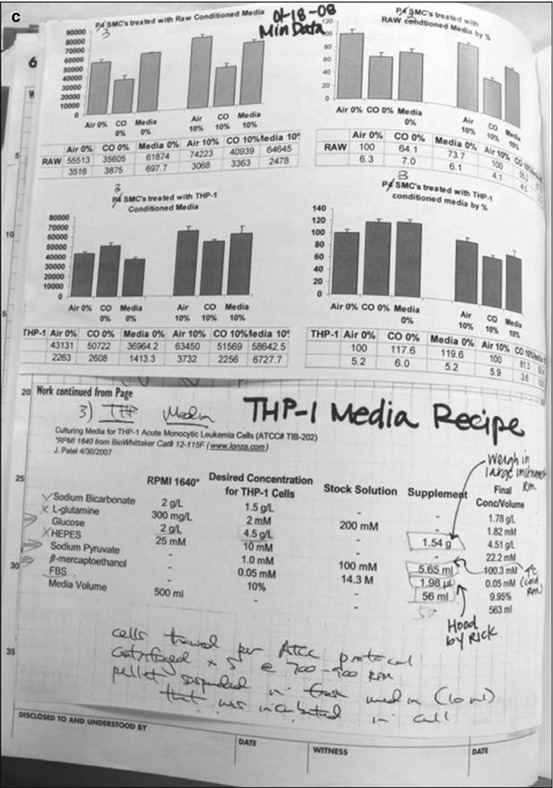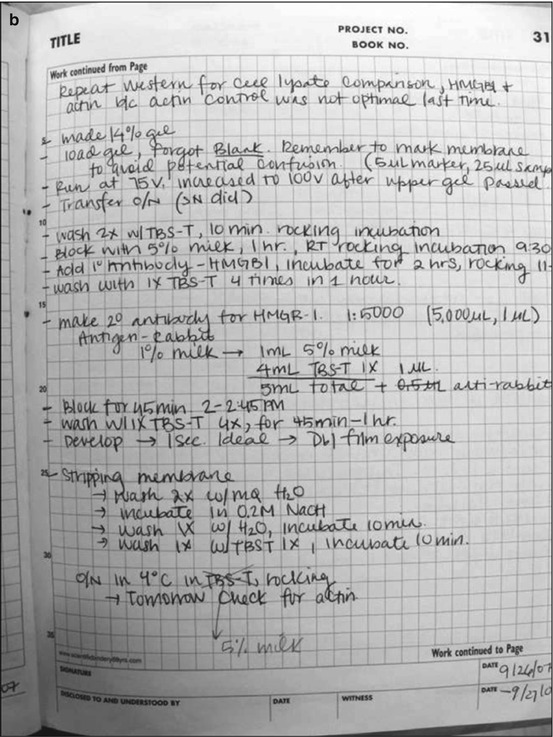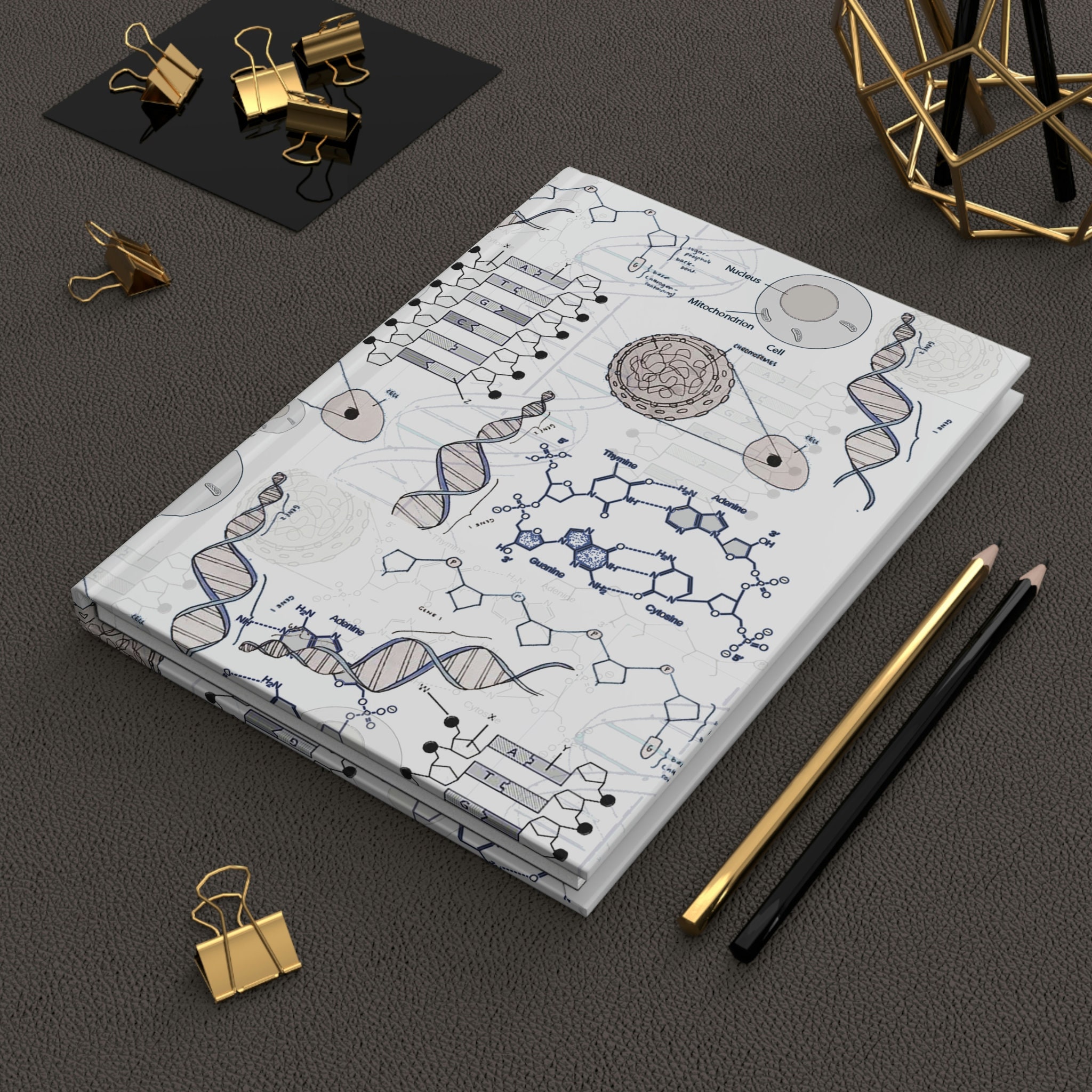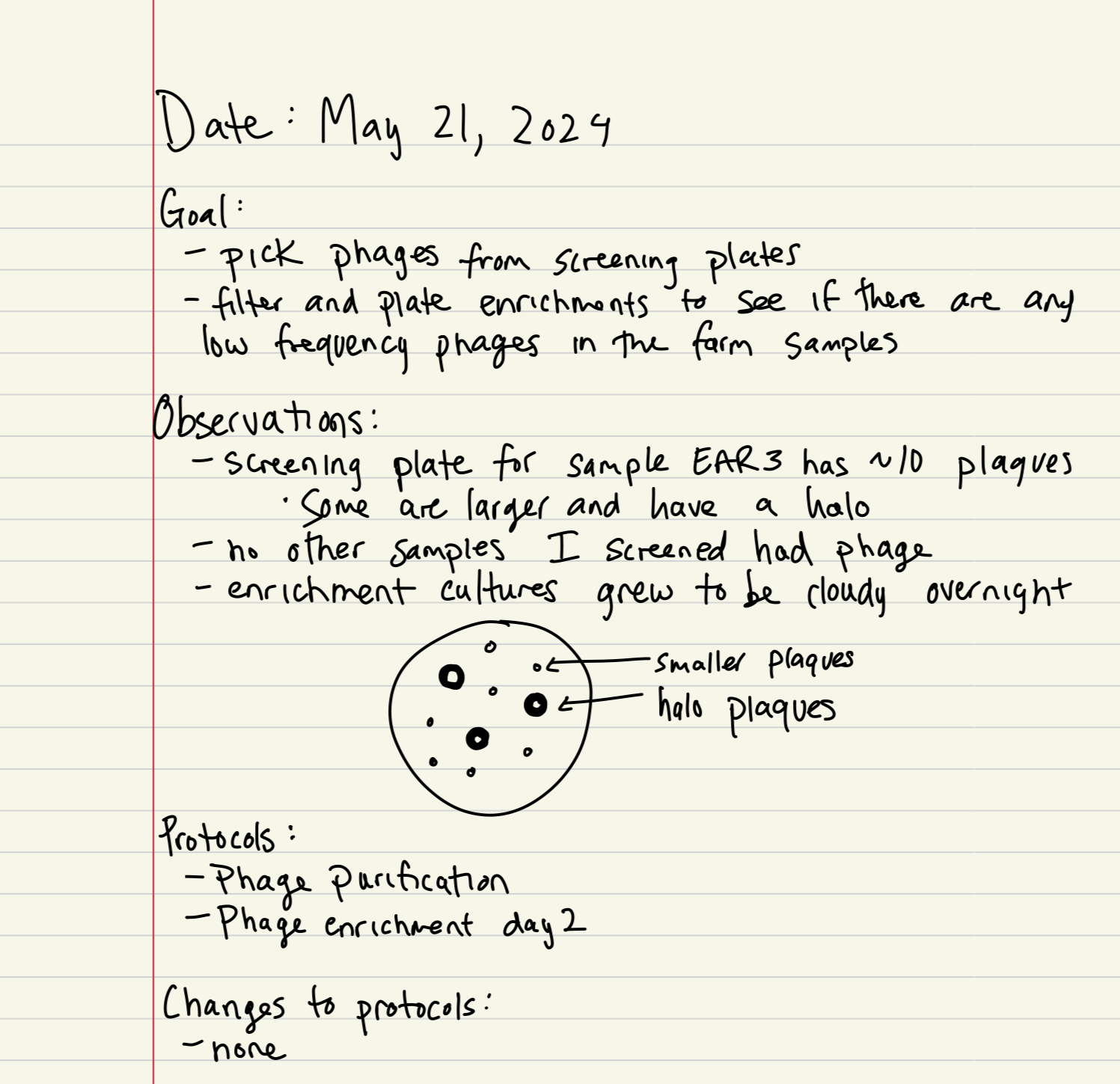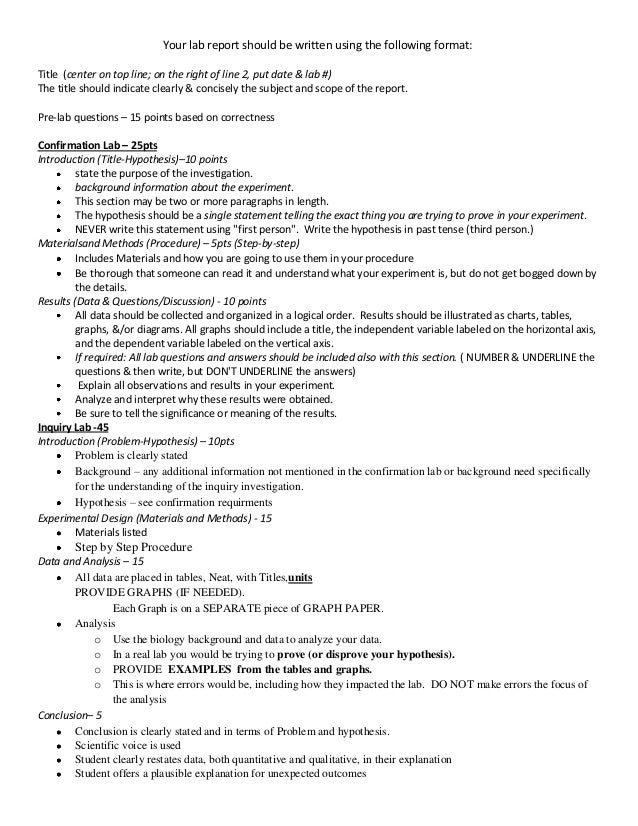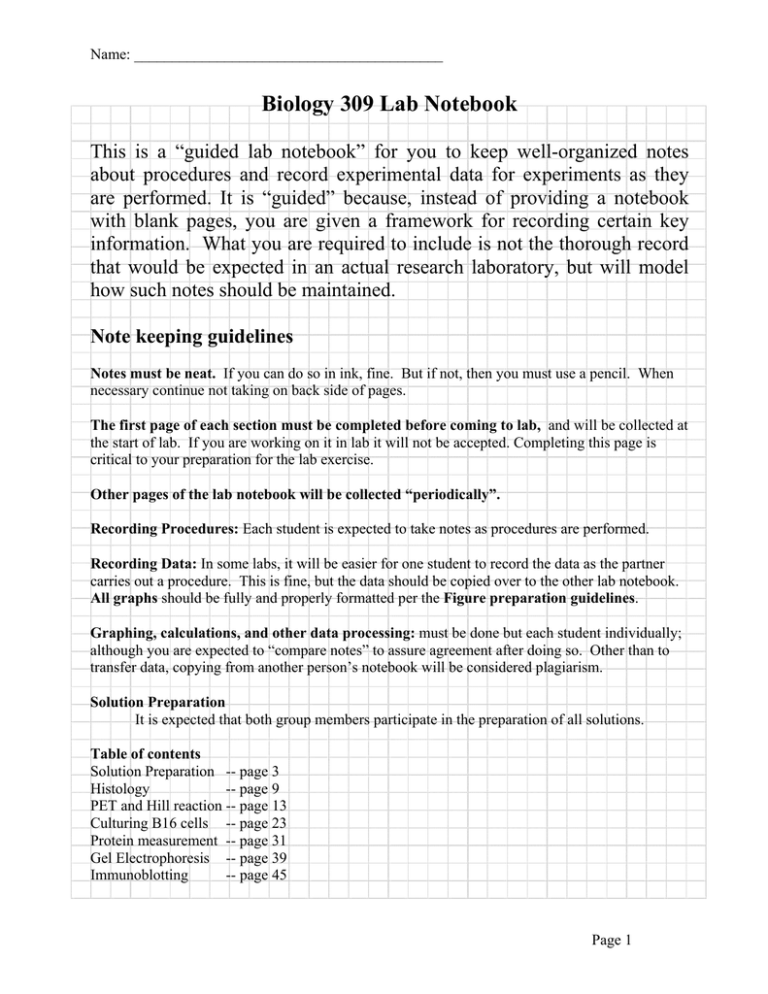Lab Notebook Example Biology - This page is designed to show you an example of a lab notebook entry. The work may be ancient history but as an example of recordkeeping this. Fast shippingread ratings & reviews In “real” laboratory science, the lab notebook serves several purposes. As a researcher, it is your responsibility to maintain your laboratory notebook in a format that is intelligible to yourself, your pi, and future. Below is the template for your laboratory write up. An accurate record of experimental details allows experiments to be. A lab notebook is a complete record of procedures (the actions you take), the reagents you use, the observations. Here are examples of a title page and specific notebook entries. This handout will show you how to format a biology lab report and what is usually required in each section.
This handout will show you how to format a biology lab report and what is usually required in each section. Each page of your laboratory report (spiral or ring) needs to be set up in the same way. Below is the template for your laboratory write up. The following example notebook entries are from an experiment where wild type and rad1 mutant yeast were plated, exposed to varying amounts. The work may be ancient history but as an example of recordkeeping this. Here are examples of a title page and specific notebook entries. As a researcher, it is your responsibility to maintain your laboratory notebook in a format that is intelligible to yourself, your pi, and future. For this example, we used a high school biology lab from our bio 095 course. An accurate record of experimental details allows experiments to be. A lab notebook is a complete record of procedures (the actions you take), the reagents you use, the observations.
This handout will show you how to format a biology lab report and what is usually required in each section. The work may be ancient history but as an example of recordkeeping this. Here are examples of a title page and specific notebook entries. A lab notebook is a complete record of procedures (the actions you take), the reagents you use, the observations. Fast shippingread ratings & reviews As a researcher, it is your responsibility to maintain your laboratory notebook in a format that is intelligible to yourself, your pi, and future. For this example, we used a high school biology lab from our bio 095 course. An accurate record of experimental details allows experiments to be. In “real” laboratory science, the lab notebook serves several purposes. This page is designed to show you an example of a lab notebook entry.
Biology Lab Notebooks
Fast shippingread ratings & reviews Below is the template for your laboratory write up. Each page of your laboratory report (spiral or ring) needs to be set up in the same way. The work may be ancient history but as an example of recordkeeping this. This handout will show you how to format a biology lab report and what is.
Sample Lab Notebook Format
The following example notebook entries are from an experiment where wild type and rad1 mutant yeast were plated, exposed to varying amounts. The work may be ancient history but as an example of recordkeeping this. For this example, we used a high school biology lab from our bio 095 course. This handout will show you how to format a biology.
Classmate Biology Record Book at Mark Cox blog
For this example, we used a high school biology lab from our bio 095 course. Fast shippingread ratings & reviews An accurate record of experimental details allows experiments to be. Each page of your laboratory report (spiral or ring) needs to be set up in the same way. In “real” laboratory science, the lab notebook serves several purposes.
TeamVanderbilt/Notebook
Each page of your laboratory report (spiral or ring) needs to be set up in the same way. Below is the template for your laboratory write up. An accurate record of experimental details allows experiments to be. Fast shippingread ratings & reviews This handout will show you how to format a biology lab report and what is usually required in.
Sample Lab Notebook Format
This handout will show you how to format a biology lab report and what is usually required in each section. As a researcher, it is your responsibility to maintain your laboratory notebook in a format that is intelligible to yourself, your pi, and future. For this example, we used a high school biology lab from our bio 095 course. Below.
Personalized Lab Notebook Biology Hardcover Etsy
An accurate record of experimental details allows experiments to be. The following example notebook entries are from an experiment where wild type and rad1 mutant yeast were plated, exposed to varying amounts. Each page of your laboratory report (spiral or ring) needs to be set up in the same way. Here are examples of a title page and specific notebook.
Lab Notebook Instructions Community Phages
This handout will show you how to format a biology lab report and what is usually required in each section. A lab notebook is a complete record of procedures (the actions you take), the reagents you use, the observations. Here are examples of a title page and specific notebook entries. This page is designed to show you an example of.
Guide to having a good lab notebook Scientia Research
As a researcher, it is your responsibility to maintain your laboratory notebook in a format that is intelligible to yourself, your pi, and future. A lab notebook is a complete record of procedures (the actions you take), the reagents you use, the observations. For this example, we used a high school biology lab from our bio 095 course. This page.
Neat Tips About How To Write Up A Biology Lab Report Blockbath71
This handout will show you how to format a biology lab report and what is usually required in each section. Fast shippingread ratings & reviews For this example, we used a high school biology lab from our bio 095 course. Here are examples of a title page and specific notebook entries. This page is designed to show you an example.
Biology 309 Lab Notebook
An accurate record of experimental details allows experiments to be. Here are examples of a title page and specific notebook entries. Below is the template for your laboratory write up. As a researcher, it is your responsibility to maintain your laboratory notebook in a format that is intelligible to yourself, your pi, and future. This page is designed to show.
Each Page Of Your Laboratory Report (Spiral Or Ring) Needs To Be Set Up In The Same Way.
An accurate record of experimental details allows experiments to be. Below is the template for your laboratory write up. In “real” laboratory science, the lab notebook serves several purposes. For this example, we used a high school biology lab from our bio 095 course.
This Page Is Designed To Show You An Example Of A Lab Notebook Entry.
The following example notebook entries are from an experiment where wild type and rad1 mutant yeast were plated, exposed to varying amounts. Fast shippingread ratings & reviews The work may be ancient history but as an example of recordkeeping this. This handout will show you how to format a biology lab report and what is usually required in each section.
As A Researcher, It Is Your Responsibility To Maintain Your Laboratory Notebook In A Format That Is Intelligible To Yourself, Your Pi, And Future.
Here are examples of a title page and specific notebook entries. A lab notebook is a complete record of procedures (the actions you take), the reagents you use, the observations.

